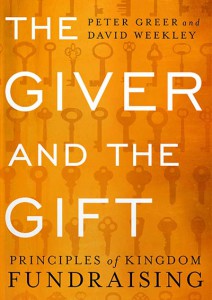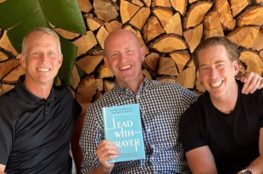After weeks of application questions and initial interviews, the time for my final interview with HOPE International’s board of directors had finally arrived. Things seemed to be going smoothly—that is, until Tom, one of the board members, asked a question that I was completely unprepared to answer.
“Do you have any experience fundraising?”
Fundraising? Even though I was applying for a position with a nonprofit, I had somehow failed to understand that ensuring there were adequate resources to implement the mission was going to be an important part of my job.
I am incredibly grateful that, despite my complete lack of knowledge or experience in this aspect of my role, the board still offered me a position at HOPE. The 11 years since then have been a steep learning process, including some unforgettable lessons on the do’s and don’ts of fundraising.
Knowing that I’ve learned more through the times of failure, here are my Top 10 Fundraising Fails—lessons that I hope you don’t have to repeat!
1. I verbally vomited on people.
Early on, I would charge into meetings and nervously gush HOPE’s mission, key objectives, and plans for the future, without having any idea if the person on the other side of the table even had any interest! Since then, I’ve learned that even more important than what I want to communicate is taking the time to get to know who I’m taking to—their calling, mission, and special areas of passion. I’ve tried to adopt the 70/30 rule: Listen for 70 percent of the time and talk for 30 percent.
2. I didn’t follow up.
There were times when I would promise to send a person additional information, but then get inundated by the avalanche in my inbox and forget the specific details of what I’d promised. I’ve learned I can’t trust my memory, so today, I have a stronger system in place to immediately capture all items right after a meeting, while the conversation is still fresh in my mind.
3. I focused too much on new relationships.
At times, I have focused more on seeking out new donors than caring for existing supporters. I’ve realized that attrition is a crucial indicator of long-term success. In fact, I consider that statistic as even more important than the amount of funds raised on an annual basis.
4. I failed to give sacrificially first.
How can I ask others to do what I’m not willing to do myself? Early on, I was asking others to join HOPE’s mission but was not personally contributing toward it in a deep and sacrificial way.
5. I focused on short-term goals not long-term relationships.
I put immense pressure on meeting quarterly fundraising goals—even if it meant sabotaging long-term relationships with potential partners. Impatience is a killer of every relationship.
6. I failed to move on.
I put inordinate amounts of energy into several relationships that simply were not a fit in terms of mission and passions. I’ve learned that it’s important to give yourself the freedom to move on.
7. I jumped when I should have waited.
Every time I’ve made an “ask” without being asked for one, it hasn’t gone well. My friend Terry says that a good ask is like a marriage proposal—the person ought to know it’s coming, and you ought to have a pretty good idea of what the answer will be!
8. I failed to honor others.
There have been times when I’ve shared stories about the families HOPE serves in a way that might have generated a donation but did not honor them. Each time I talk about HOPE’s clients, I’m committed to doing so in a way that celebrates their incredible gifts and dignity.
9. I failed to talk about failure.
I believed that in order for donors to offer their support, I had to pretend that everything was going perfectly well. But actually, the opposite is true. If there isn’t honesty in the times when HOPE doesn’t meet our goals or has operational failures, it’s not a real partnership. In the corporate world, you get put in prison for not divulging key information to your stakeholders, and yet somehow in the nonprofit world it’s become standard practice! Honesty and transparency are crucial to any successful partnership.
10. I said “yes” to every invitation.
By accepting every invitation to meet with donors, churches, and organizations, I was actually saying “no” to the ministry and joy of loving my family at home. I also wasn’t empowering other members of my team to rise up, gain practice, and expand HOPE’s impact through their gifts.
Learn more about how fundraising can be a life-giving, generous partnership between both the giver and the recipient:
The Giver and the Gift:
Principles of Kingdom Fundraising
by Peter Greer and David Weekley





March 1, 2016
As someone who is getting a non profit ministry up and going, I really appreciate this! It’s overwhelming! So thankful I have a big God that isn’t overwhelmed at all! Thanks for all you do! I’ve been learning from your mission !
March 3, 2016
So glad to hear this, Rachel! All the best to you as you continue to learn and grow in your role in ministry.
March 2, 2016
So much wisdom and humility here, Peter, thank you for writing and sharing from your heart.
Lisa
March 3, 2016
Thank you, Lisa!
March 4, 2016
This is implied in some of your points, but I fail to say thank you soon enough and often enough.